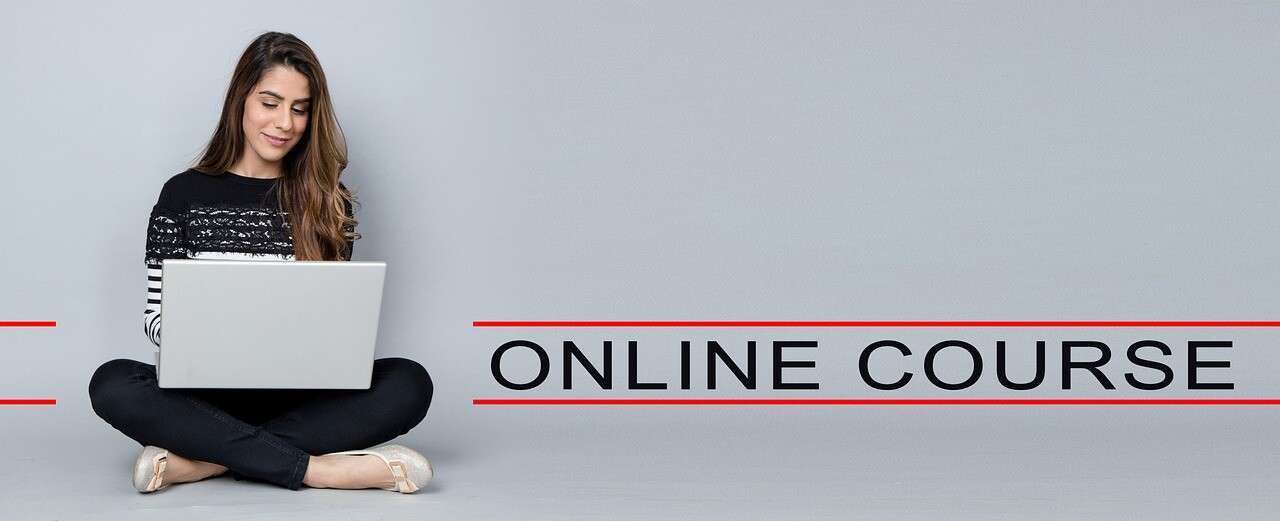
I figure if I have to say it a bunch of times at work, probably lots of other people need to hear it too.
Rest is not “doing nothing.”
It’s not just binging videos or losing an afternoon to games on your phone either, although those things can be part of rest.
We all need to participate in active relaxation, and get deep rest, and drop any guilt about it. Despite the pedestal we put overwork on, we actually get much less done when we work too many hours.
So, active relaxation, just what is that? Meditation. Reading, listening to, watching something uplifting. Gratitude journaling.
Napping. Progressive muscle relaxation.
Putting away the piles, lists, and chores and engaging in a hobby can also be restful. Creating something – knit or sew, hammer or saw, sing or strum. Disengage from the drudgery and play.
I hear a lot, “I was just so tired, I had to do nothing all day yesterday.” Well, if you are that tired, then you weren’t doing nothing. You were resting, it’s just that your body had to take you down to get what it needs.
Make time to rest, whether it’s sleep or shifting your energy to something that refuels you, before you are running on empty. (I hope you don’t wait until your car is sputtering or the engine seizes up before you add gas and oil?)
Go do something really important...rest.

It’s a bright February day here in Maine, and the sun is actually strong enough that, beaming in my window, it actually warms me up as I sit at my desk. This seems to happen just in time for the wintery-est period in my corner of the world. We’ve had a mild one so far, with very little snow, but things are picking up. The longest, shortest month is here to remind us that we have a way to go before we can plant all the seeds we’ve ordered.
If you downloaded my nervous system guide, you know I love aromatherapy. Even before I started using essential oils, one of my favorite things to boost my mood in February involved the sense of smell. My top two: go walk through a greenhouse just to smell the soil, or put on some sunscreen to remember sunny beach days.
Our sense of smell is one of our oldest and has more to do with our danger alert system than any other. And since our olfactory nerve evolved into the limbic system, we’ve held onto trusting our sense of smell to detect danger. (I like this Khan Academy video that explains it all in plain language.)
Emotions are not "good" or "bad" although we experience them as more comfortable or uncomfortable. Every emotion has a function, and that is to send us messages to help with decisions. Feeling happy encourages us to repeat whatever made us feel that way. Feeling sad or pain teaches us to avoid the cause.
In my therapy practice, I teach people emotions are like a smoke detector that just reacts to the environment. Anyone have a smoke detector that is too sensitive? My brother calls his the "toast detector." We take ours down when we are making a stir-fry or broiling anything.
We can learn to use other senses to decide if our emotion is based in reality. If we decide our inner smoke detector has over-reacted, aromatherapy is one way we can turn off the alarm.
If you are looking for a mood boost, it’s hard to go wrong with citrus or mint. Today’s diffuser blend is Citrus Fresh to match the warm sun, with some rosemary thrown because I need to focus this morning.
PS
(Lots of places are already backordered, luckily one of my favorite farmers has plenty of seeds left, and lots of resources and videos!)

I’ve worked in mental health, as a psychotherapist, for coming up on 25 years. (Not sure how that can be true since I’m pretty sure I’m in my extremely late 30’s). When people come in because they are struggling with anxious, depressed, or traumatic thought processes, they understandably want to learn how to make the pain go away.
One of the things I have to say right up front is, that isn’t quite how it works.
Our brains are amazing and have learned some pretty great things over the years about how to keep us alive. In fact, this is the brain’s top priority, much more important than keeping us happy.
You get to over-react endless times and stay alive. Under-react once and…that’s it.
After delivering this unwanted news, I get to share the exciting part: we can learn to work WITH that tendency, and actually harness that super-power.
I attended a virtual conference in December, focusing on how psychotherapy has evolved and where we are now. Since it’s virtual, I get to attend ALL the sessions, over the course of a year, rather than just a few if I’d attended in person (introvert swoon!). The most recent video I watched was a summary of the most amazing meta-analysis of all the studies about therapy treatments. They looked at almost 55,000 studies to learn, in short, what works.
It was a full presentation, and I’m not going to try to summarize except in the most basic terms. I’m going to have to listen a few more times and I can’t wait until they publish soon.
So, what does work? Or to phrase it another way, what is mental health, if it isn’t the absence of uncomfortable symptoms?
Here’s a few of the biggest factors: cognitive flexibility; acceptance and emotional openness; perspective; voluntary attention to the now.
On that last one, fun fact from the presentation: 15 minutes of meditation “turns on 2% of the genome.” I can’t wait to learn more about that!
What does mental health mean to you?

Something I’ve noticed with my job over the years is sensing “something in the air” affecting people isn't just made up. When it’s midweek and I’ve had the same conversation half a dozen or more times, I have been known to boldly declare that something is in transit or retrograde, because too many of us are in the same place.
This week, something I talked a lot about is having “the Januarys.” We are moving slowly, our energy is lower, and there can be a strong draw to “nesting.” Maybe it’s the post-holiday fallout, or we finally are tired of looking at that same clutter, but it’s not uncommon to be cleaning shelves and rearranging furniture. I shifted everything on my desk so that I’m two feet to the right, because I got tired of being overly toasty from sitting above the baseboard heater. Now I have to figure out how to function with everything to the left of my computer, when I'm veryveryvery right handed.
I’m also prone to unbelievable urges to get rid of about two thirds of the STUFF in our house. This is not met with enthusiasm by other household residents, so I have to approach with caution and with careful timing.
We are halfway through meteorological winter here in the north, we’ve gained about an hour of daylight, but it’s also the coldest time of year. If you aren’t into winter sports, or the bare ground is frustrating your skiing, cabin fever can set in. Throw in a pandemic and I can’t use my usual “get out and go somewhere new” advice. I like to send folks to greenhouses to smell the soil, or urge comfort food potluck dinners. This year...I'm hoping everyone just stays home so we are all around to emerge come spring.
The Januarys can be annoying for many, but for folks this year who are already maxed out from isolation or stress, it’s been even more pronounced.
This is a good time to pull out all the stops. Any positive coping skill you have, whether it’s rereading a favorite book for the umpteenth time, ordering way more seeds than is realistic because it helps you look toward gardening weather, or hauling unbelievable amounts of stuff to the thrift store, no judgment.

You can’t learn to swim in a hurricane.
This is not the topic I planned to write about this week. But…world events.
Anyone else have some jangling nerves the past few days? I hope they have eased as things seem to have subsided in our corner of the world. But it is normal for you to still be on edge. (I might actually be more worried for anyone who isn’t still worried.)
Those feelings you may be having – physical tension, problems concentrating, weird sleep and appetite are some common ones – are your danger alert system. Our brain is hard wired to be on the lookout for threats, above all else. The problem is our brain isn’t always great about recognizing what is imminent physical danger and what is something to be concerned about but further away.
It’s like your typical smoke detector, which has one job: to let you know if it senses smoke or heat. It has no idea if the heat is from steam from a big stir fry on the stove, something left too long on the oven that is sending out smoke, or a candle that tipped over and caught the drapes on fire. It shrieks the same for all scenarios.
We can’t, and should not, try to get rid of our inner smoke detector, but we need to learn to react according to the actual threat, not the piercing sound. (Anyone else take your detector down if you are going to do lots of baking or cooking, and put it back up when you are done?) You probably already have some automatic reaction to your real smoke detector. If mine went off right now while I’m typing this, I’d be much more startled than if I’ve just opened the oven to check something and sent a waft of heat down the hall.
The reason our smoke detector is so loud is it needs our attention over everything else. STOP NOW AND TAKE CARE OF ME! (If because of trauma, you have learned to tune out your detector, or it seems like you don’t have one, that’s a normal reaction to abnormal events, and can be recalibrated but that’s a different topic.)
I was supposed to teach a class on Wednesday on how to use breath work to manage moods. While it may seem like it was even more needed, I actually ended up cancelling because in the middle of a fire drill is the worst time to try to learn something new. When our brains are searching for the danger (done by the amygdala), the part that creates new memory (hippocampus) just can’t do its job well. We can’t form new memories, or what we remember is disjointed and we may recall less important points and struggle with the main theme.
Also, there is the danger of whatever is learned being connected in our minds to the shriek of the alarm. Maybe the next time you use the breath that is supposed to be calming, your mind goes back to the loud, scary alarm and the emergency you discovered.
Wednesday was a day to use the coping skills we already had, to the best of our abilities. If you do need some extra strategies, check out my nervous system guide for something that triggers automatic responses, no learning needed because your body already knows what to do.
I’m getting that class rescheduled, visit my homepage for the latest days and times. In the meantime, be gentle with yourself, and know that whatever high or medium alert you may still be feeling is actually a good sign of a brain that is doing its best to protect you.



